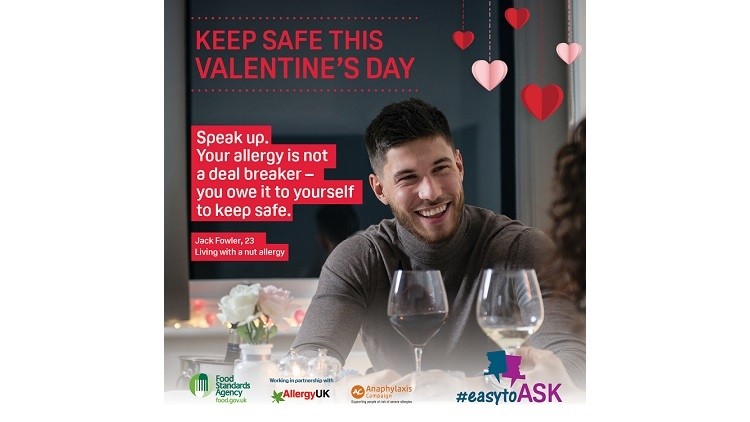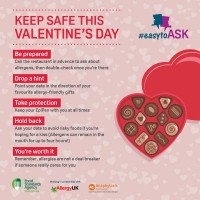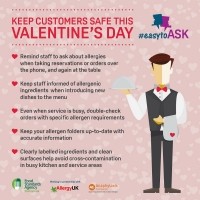Customers must ‘speak up’ about food allergens

The Food Standards Agency (FSA)’s new Valentine-themed initiative is aimed at young people and highlights the importance of being confident and speaking out if you live with an allergy or intolerance.
Dating embarrassment
Love Island star Jack Fowler has a severe nut allergy and is one of the faces of the FSA’s #EasytoAsk campaign.
“Speak up. Your allergy is not a deal breaker – you owe it to yourself to keep safe,” a quote from Fowler used on social media images reads.
The dating focus follows findings from the agency that some young people feel embarrassed about the prospect of explaining their allergy and do not make others aware of it.
Love is in the air. Happy #ValentinesDay. Have a safe and fun celebration.Remember, it's #easytoASK Always ask about allergens, Speak up, Keep safe #foodallergypic.twitter.com/kVwRV1XqFg
— FoodStandardsAgency (@foodgov) February 14, 2019
Some 5% of the young people with a food allergy and 11% with a food intolerance surveyed by the FSA said they did not tell anyone about their condition, potentially risking allergic reactions or fatal consequences.
Its research also found that 59% tended to visit the same places when eating out, with a similar figure (55%) reporting to always research the menu online before going to a new or unfamiliar place.
Only 9% said they always contacted a venue in advance to check they provided allergen information.
Online guidance
The FSA has also reiterated its guidance for out-of-home venues with online materials.
Businesses that sell food to customers directly must supply allergen information for every item that contains any of the 14 allergens.
Allergen information must be provided in writing and any information relayed in a conversation with a customer must be then backed up by reference to written material.
This could be on a menu, chalkboard or in an information pack. Pubs must also provide a clearly visible written notice that explains how customers can obtain this information.
Be prepared…remind your staff to ask about #FoodAllergies when taking bookings and orders this #ValentinesDay. Here's how you can make it #easytoASK for allergen info: More here: https://t.co/NNEpmLJNlnpic.twitter.com/jsJxDTC45L
— FoodStandardsAgency (@foodgov) February 13, 2019
Staff should know the procedures when asked to provide allergen information and receive training on how to handle such requests.
They should be able to guarantee that customers are served the right food and know the risks of allergen cross-contamination when handling and preparing meals.
Publicans can find more information on the legal requirements surrounding allergens on the FSA website, including free downloadable templates and training material.
What are the 14 allergens? |
|








